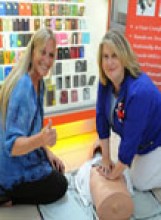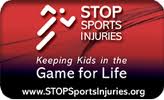Safety Tips for the Holidays
ByThe holidays are a time for families to celebrate and come together. It is also the time when hospitals report increases in the number of accidents and injuries. Now is the time to spend additional attention to your health and safety. Here are seven tips to help keep you safe and healthy during the holiday season.
- Handling and Preparation of Food – Food poisoning can put a damper on the holidays. Make sure to wash your hands before handling any food items. Clean and/or disinfect all food preparation surfaces. Avoid cross-contamination especially with meats or fowl. Cook all foods to their proper temperatures and refrigerate left-over as soon as possible.
- Hand Washing – The best way to keep from getting sick and spreading germs is to wash your hands often. Plain soap and water is all you need. The use of a and sanitizer will work when soap and water are not readily available. Avoid coughing or sneezing into your hands. The CDC now recommends that you cover your mouth or nose with your sleeve or into a disposable Kleenex, which is immediately thrown-away.
- Travel Safety – You have heard it a million times, don’t drink and drive. There is a reason why the Police and Highway Patrol increase their staffing during the holidays. In climate weather and holiday traffic, increase the opportunities for accidents. Allow extra driving time. You don’t want to resort to speeding or engage in reckless driving to make up time for leaving late or for unanticipated traffic delays. And always make sure everyone wears a seat-belt.
- Burns – Keep children out of the kitchen while preparing meals. Hot grease needs to be kept in a safe location. Pot handles should be point in and not left exposed away from the stove. This is an opportunity for kids to pull hot liquids down on them or adults accidentally bumping into the handles and spilling hot items on themselves or others. Cool all burns immediately with cool running water (no butter, lard, mayonnaise, egg, toothpaste or other home remedy). Small burns can be treated with an over-the-counter burn gel. Burns to the genitals, face or larger than 9% body area (about the size of your hand with fingers expanded) should be seen by a physician.
- Fires – Most residential fires happen in the winter months. Keep tree stands filled with water. Heated rooms can dry live trees out rapidly. Never leave candles, fireplaces, stoves or space heaters unattended. Check smoke detectors and replace batteries if it has been longer than 6 months. Have an emergency plan that is practiced with all family members. Children tend to hide when scared which makes it difficult to find them in smokey rooms. Teach them how to exit each room (have two solutions, such as the door or out a window) and have a rendezvous location outside of the home.
- Prevent Injuries – Use ladders and stools correctly instead of furniture when decorating. Hide or tape down with duct-tape all loose wires. Wear appropriate shoes when going outside. Rain, ice and snow can change the condition of walking surfaces. Use care and proper lifting techniques when lifting trees or large presents. Twisting or turning when lifting can cause falls and damage to your back. Nobody wants to spend their holidays in a hospital bed.
- Watch the Kids – This is an exciting time for the little ones. Their extra enthusiasm can put them into dangerous situation. Encourage their fun but in a safe manner. Give them toys appropriate for their age. Balloons, strings and ribbons are all potential suffocation or choking items for children under the age of 8. Have them dress properly before going outside. Always have them wear safety items such as helmets and knee or elbow pads when biking or using skates or skateboards.







